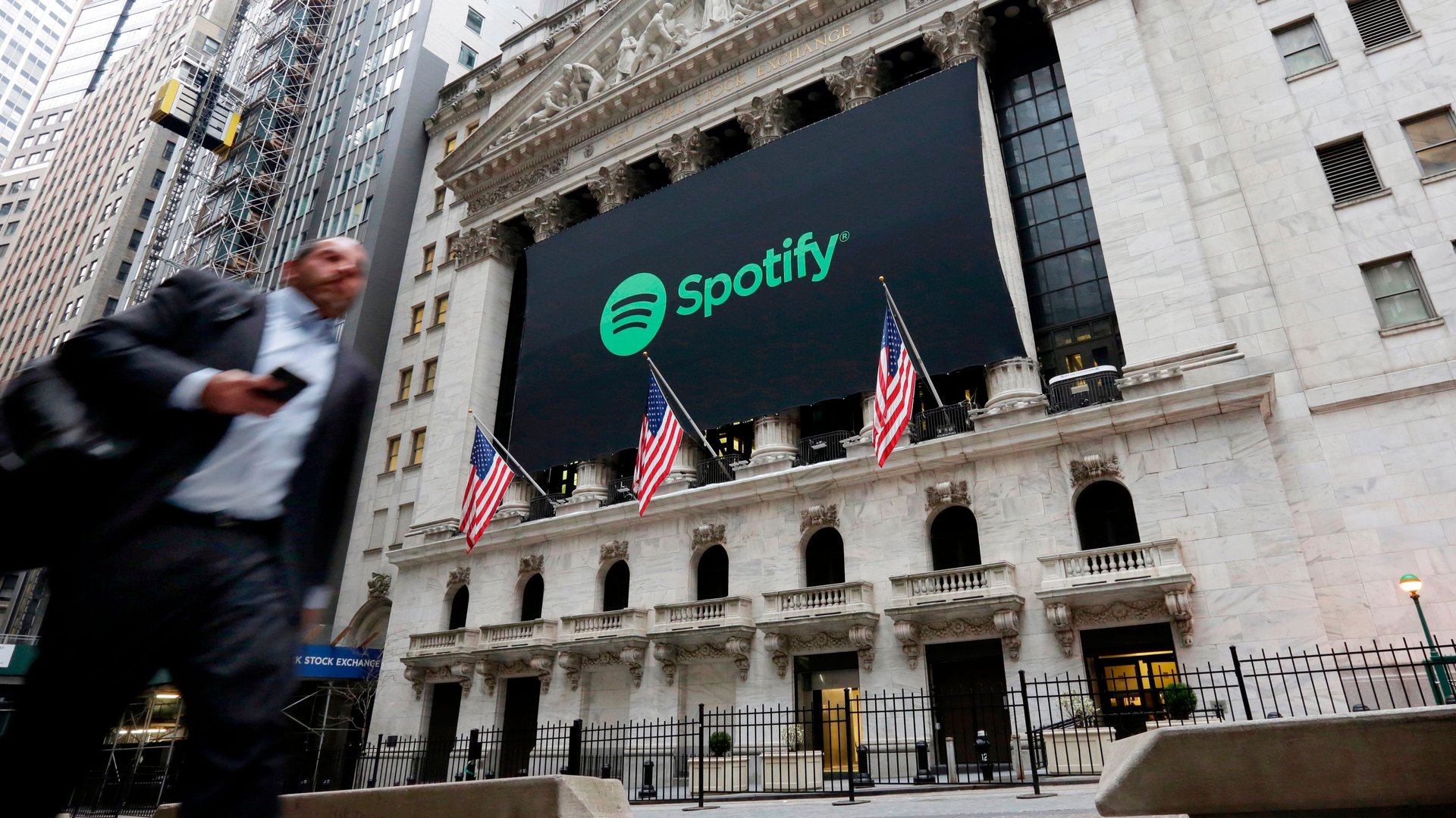Why do we still call it capitalism?
When Spotify “went public” last week, it did so in name only, eschewing the usual fanfare of ringing the opening bell at the NYSE and most of the conventions of an IPO. While the price exceeded expectations in the early hours of trading—the most customary measure of success—CEO Daniel Ek had already made clear his real goal: to directly match public buyers with private sellers.


When Spotify “went public” last week, it did so in name only, eschewing the usual fanfare of ringing the opening bell at the NYSE and most of the conventions of an IPO. While the price exceeded expectations in the early hours of trading—the most customary measure of success—CEO Daniel Ek had already made clear his real goal: to directly match public buyers with private sellers.
Achieving a high price was nice for the sellers. It wasn’t all that material for the company.
Increasingly, this is the case for public companies: Though it’s still called “capitalism,” the need for capital is far smaller than yesteryear—and there are better options than the public equity markets.
At a speech in London last month, the economist and scholar John Kay used Apple, the largest company in the world in terms of market capitalization, as a typical example of a fast-moving modern business: The company has very few assets and a full-time global labor force of only 123,000—i.e. not that many, given its market reach and influence. It is what Kay calls a “hallow” corporation, and one in which the only thing that shareholders actually own is the stock certificate itself. “I wish we could stop calling it Capitalism,” he said, continuing:
“…and what of Apple’s $800 billion market capitalization? So wedded are we to the idea that capital is critical to business, so much in thrall to the word, that we have invented new concepts such as social and intellectual capital to try to explain phenomena that are perhaps more clearly and certainly more simply described in ordinary language.”
For stocks that dominate the market today—Apple, Amazon, Facebook, Google, Netflix, and Microsoft—the capital deployed to actually produce the product does so at a great remove from the company. If there is real estate involved, it might be owned by a sovereign wealth fund located on a different continent. Employees who touch the product, if the company manufactures at all, are contractors in an equally remote location. The need for fresh capital is modest to non-existent. Companies that go public today, like Spotify, are doing it for one basic reason: to allow the venture capitalists and early round investors to exit.
So it makes sense that these companies are giving shareholders less control over the management of their businesses. When Snapchat went public earlier this year, it went even further than Google, Facebook and LinkedIn, whose dual-class shares dilute the voting power of the common shareholders: it thumbed its nose at public market norms and offered no voting rights at all.
Snapchat’s decision was perfectly legal, and an honest—if extreme—signal about who bears both the risk and responsibility of decision-making in the company. Financial capital is no longer a scare resource. The stock market is simply speculation. There is no reason to grant shareholders so much power.
But if companies give less power to investors, to whom should their executives listen? I believe that part of the answer lies within the link between talent and business reputation.
The private shareholders, who are often protected by a broad index, or at the least are able to exit, have a lot less at risk than the employees who may own shares of stock, but who also derive their income directly from the enterprise. And these employees are an increasingly noisy group—as evidenced by the growth of data sites like Glassdoor, the importance of rankings like “Best Companies to Work For” and the careful attention paid to Employee Engagement scores that link corporate reputation, employee motivation and productivity.
Much of the noise generated in the ups and downs of the stock price keeps CNBC in business, but this noise has almost nothing to do with business of the business. That conversation has moved to employee hangouts, both virtual and real, to interview rooms on college campuses, and to public conversations about Board diversity, the glass ceiling, and in the talent pool.
These are the places where company executives and Directors should be investing in their reputation.
The young talent you hope to attract and retain has big ideas about the business of business. The wealth of individuals who happen to own your stock on a given day aren’t on their priority list.
Judith Samuelson is a vice president at the Aspen Institute.